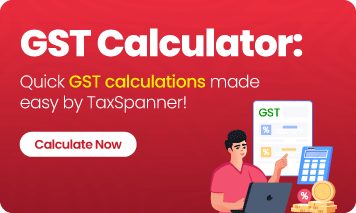No GST on Alcohol in India: A Take on Alcohol Taxation
When the Goods and Services Tax (GST) was introduced in India on July 1, 2017, it aimed to create a unified tax structure across the country. However, one notable exception to the GST regime is alcohol for human consumption, including liquor. Unlike many other products that fall under GST, alcohol remains under the purview of state governments, with no direct GST on alcohol. This blog explores why there is no GST on alcohol, the various taxes levied on liquor, and the broader implications for consumers and businesses in India.
Why is Alcohol Exempt from GST in India?
One of the main reasons alcohol remains outside the GST framework is because it’s a significant source of revenue for the state governments. By excluding alcohol from GST, states retain control over tax on alcohol in India through excise duty and VAT on alcohol. If alcohol were to be brought under GST, states would lose a key revenue stream, which they have been reluctant to surrender.
Currently, alcohol is taxed through excise duty and VAT (Value Added Tax), which are both imposed by individual states. This leads to price variations across the country since each state sets its own tax rates. Unlike a uniform GST on liquor, the current tax system allows states to maximize revenue from alcohol sales in their respective regions.
State Excise Duty and VAT: The Backbone of Alcohol Taxation
While there is no GST on alcohol, state excise duty remains the primary tax levied by states. This tax is charged at the time of alcohol production, which is then passed on to consumers, often resulting in high retail prices. Some states generate a significant portion of their revenue through this excise duty. For instance, states like Karnataka, Maharashtra, and West Bengal collect substantial income through the tax on liquor in India.
In addition to excise duty, states also levy VAT on alcohol, an additional tax over and above excise. This further inflates the price of liquor, and the rates of VAT vary from state to state. Thus, consumers often find substantial differences in alcohol prices across regions, a discrepancy that would be less prominent if there were a unified liquor GST rate.
GST on Alcohol-Related Services and Goods
Even though there is no GST on alcohol, or a specified alcohol GST rate, services and products related to alcohol are not exempt from GST. Businesses involved in the production and distribution of alcohol still deal with GST in several areas, including:
- Packaging materials like bottles, caps, and labels used in alcohol production, which are taxed under GST.
- Transportation services related to alcohol distribution are also subject to GST.
- Advertising and promotional services for liquor brands fall under the GST framework.
- Manufacturing equipment and machinery used in the production of alcohol are also taxed according to the applicable GST rate.
For businesses, this means navigating a dual taxation system – excise and VAT on alcohol on one hand, and GST on alcohol-related goods and services on the other.
Consumer Impact: Why Alcohol Prices Vary Across States
The absence of a unified liquor GST rate and the reliance on state-imposed taxes like excise duty and VAT lead to significant price differences in alcohol across India. For instance, a bottle of whiskey might cost substantially more in Maharashtra than in Goa, primarily due to the different taxes on alcohol in India. This has led to the practice of ‘alcohol tourism,’ where people travel to states with lower taxes to purchase liquor.
If alcohol were brought under GST with a standardized alcohol GST rate, consumers would likely see more consistent pricing across states, and businesses would benefit from a more streamlined tax process.
Should Alcohol Be Brought Under GST?
There is ongoing debate about whether alcohol should be included under GST. Proponents argue that applying a GST on liquor would simplify the taxation system, promote fairer pricing, and reduce the administrative burden on businesses. It could also minimize the large price differences seen across states and lower instances of tax evasion in the alcohol industry.
However, states are likely to resist any move to include alcohol under GST due to the loss of revenue from the excise duty and VAT on liquor. Alcohol sales provide a substantial revenue source for states, and including alcohol under GST would transfer a portion of that revenue to the central government, reducing state autonomy in tax collection.
In conclusion, the alcohol remains exempt from GST to safeguard state revenues, but this comes at the cost of a fragmented tax system with varying taxes on alcohol. For consumers, this means inconsistent pricing across states, while businesses face the challenge of complying with both state and central tax laws. While the debate on whether to include GST on liquor continues, the current system guarantees that alcohol taxation remains a critical revenue stream for states. For now, both consumers and businesses must navigate the complexities of state excise duty, VAT, and GST on alcohol-related services.
Explore TaxSpanner's wide range of calculators for your tax planning and calculations!
View Tools & Calculators



